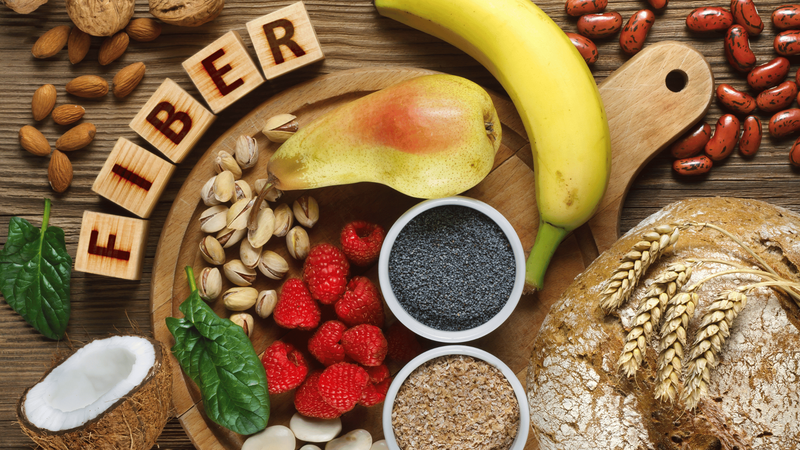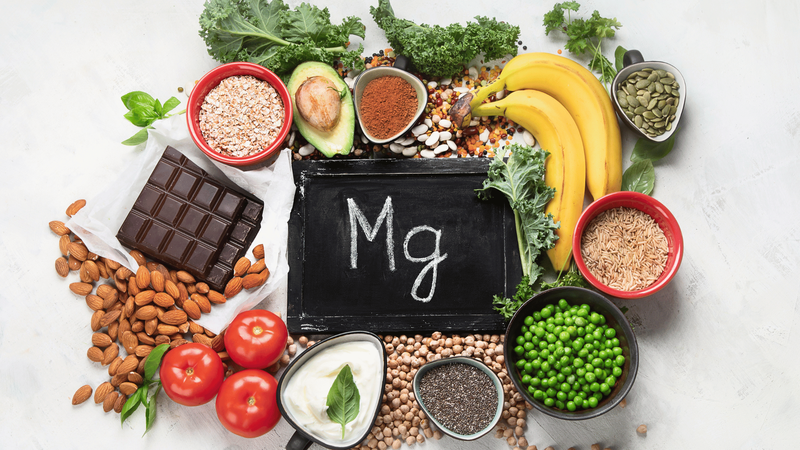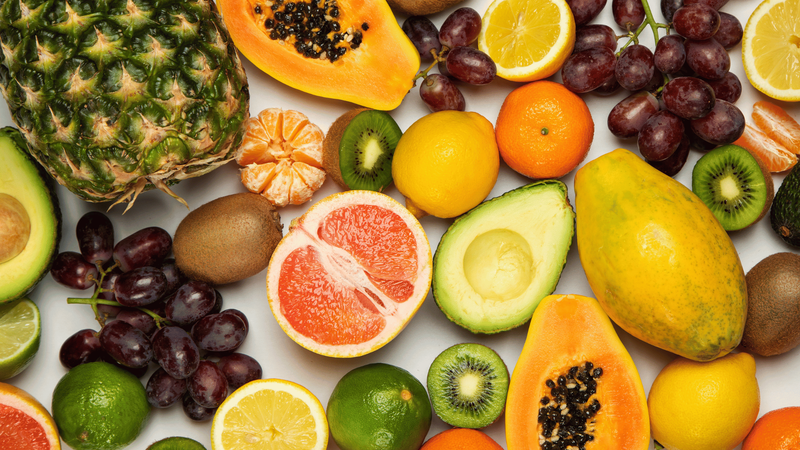Hot flashes, insomnia, mood swings… are common symptoms in premenopausal women. A balanced diet combining 6 essential nutrients during premenopause will help reduce these unpleasant symptoms.
Perimenopause is an important transitional period that most women go through, bringing with it significant changes both physically and mentally. Symptoms such as insomnia, hot flashes, mood swings and fatigue can affect the quality of life. Let’s learn about 6 essential nutrients during premenopause that women should supplement to be able to go through this stage healthily and confidently.
Fiber
According to research from the University of Nottingham in 2023, fiber brings many health benefits, from improving bowel function to reducing the risk of ovarian cancer. Fibre can aid digestion, prevent constipation and reduce pressure on the pelvic floor – an important factor in preventing uterine prolapse or bladder weakness, which are common in pre-menopausal women.
“During perimenopause, hormonal changes cause bowel movements to slow down. Not only does fibre help with digestion, it also helps slow the absorption of sugar into the bloodstream, helping to maintain stable blood sugar levels and reduce the risk of insulin resistance,” explains nutritionist Lyall. Some good sources of fibre include vegetables, fruit, whole grains and legumes.

Fiber is one of the six essential nutrients during perimenopause
Protein
During perimenopause, maintaining lean muscle mass becomes more difficult and the body tends to store fat. “Protein not only helps control cravings but also maintains stable blood sugar levels. This reduces the spikes and crashes in blood sugar that are common during perimenopause,” says nutritionist Bourne.
Good sources of protein include fish, lean meat, tofu, eggs, beans and nuts. These foods not only help improve body composition but also support heart health and stabilize cholesterol levels.
Magnesium
Magnesium is an important mineral that helps regulate sleep, reduce stress and support muscle and joint health.
“As women enter menopause, their need for magnesium increases significantly,” says Lyall. Therefore, supplementing with magnesium can help reduce symptoms such as stress and insomnia, which are common problems for women during this period.
You can supplement Magnesium through foods such as dark green leafy vegetables, almonds, cocoa and can be used as a supplement. One of the quickest ways to absorb it is to take a Magnesium salt bath, which helps Magnesium penetrate the skin and quickly affects sleep.

Magnesium may improve mental health
Omega-3 Fatty Acids
Omega-3s are essential fats that help reduce inflammation and promote brain health. “Omega-3s are a great source of healthy fats that help reduce inflammation in the body and improve mood,” says Pippa Campbell, a hormone nutritionist. She recommends omega-3s from fatty fish like salmon and mackerel, and seeds like flaxseeds.
These fatty acids can also help manage some of the symptoms of perimenopause, such as night sweats and stress. Flaxseeds are also a rich source of lignans and isoflavones, which are considered phytoestrogens, which help regulate the body’s natural estrogen levels.
Fruits and vegetables
Fruits and vegetables not only provide vitamins and minerals, but are also rich in antioxidants, which help reduce oxidative stress in the body. Clair Bourne, a pelvic health expert, recommends trying to include at least 30 plant-based foods a week to increase nutritional diversity.
“A varied diet of plant foods not only helps reduce symptoms such as hot flushes, but also adds variety to meals, which can improve your interest in healthy eating,” says Bourne. You can add greens, herbs and spices to your meals to add variety to your diet.

Premenopausal women should add more fruits and vegetables to their daily menu.
Calcium
Calcium is an essential mineral for maintaining bone health, especially during perimenopause, when women begin to lose bone density due to estrogen deficiency. “Not only milk, but other food sources such as sardines, fortified cereals and plant milks also contain significant amounts of calcium,” Bourne shares.
In addition to calcium, vitamin D is also essential to increase calcium absorption. Vitamin D supplements can come from sunlight or foods such as eggs, fatty fish and mushrooms. A diet rich in calcium and vitamin D helps maintain strong bone structure, preventing osteoporosis and bone-related diseases.
The above article helps you better understand the 6 essential nutrients during perimenopause, from fiber, protein, magnesium, omega-3, calcium to fruits and vegetables. The combination of these nutrients will bring better health to women during perimenopause and create a foundation for future health.





